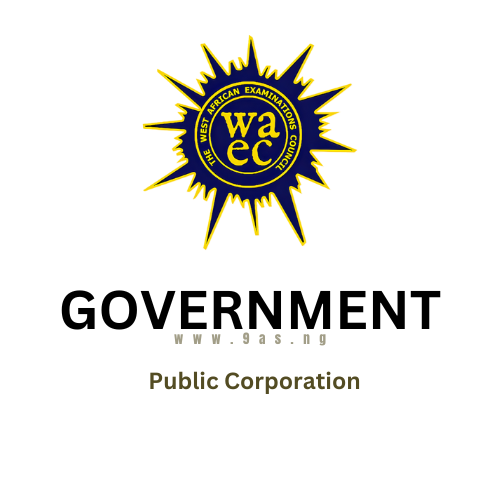THEORY
1. What measures can be taken to make public corporations more efficient?
2. (a) State the functions of public corporation.
(b) State the problems of public corporation.
3. (a) Define public corporation
(b) Give five reasons for setting up a public corporation in your country.
4. (a) What is public corporation
(b) Identify four ways in which Public Corporations are controlled.
OBJECTION
1. A major function of public corporation is to
A. construct roads and bridges.
B. compete with private companies.
C. provide certain essential services for all.
D. collect revenue for government.
2. A minister controls public corporations by
A. auditing the accounts of the corporations himself.
B. giving general policy directives.
C. criticizing the corporations through the mass media.
D. undertaking day-to-day administration of the corporations.
3. Which of the following manages a public corporation?
A. Chambers of Commerce.
B. Board of Directors.
C. An Accountant-General.
D. An Auditor General.
4. Which of the following is true of a public corporation? It is
A. set up to make profit for the government.
B. to provide essential services for the people at a low cost.
C. owned by the governor of a state.
D. established by a bye-law.
5. One of the objectives of public corporations is to
A. enhance public awareness.
B. narrow the gap between the rich and the poor.
C. encourage individual participation.
D. maximize profit.
6. Public corporations are financed
A. by tax payers.
B. with private funds.
C. with entrepreneurial funds.
D. by political parties.
7. Which of the following is not a public corporation? The
A. Nigerian Ports Authority.
B. National Sports Commission.
C. National Youth Service Corps.
D. Nigerian Railway Corporation.
8. Public corporations are setup by
A. the Board of Directors.
B. the Minister.
C. workers in the government loyally.
D. be appointed on permanent basis.
9. The administrative head of a public corporation in Nigeria is the
A. Managing Director.
B. Secretary.
C. Board of Directors.
D. Chairman.
10. Public corporations are set up by
A. a minister.
B. director.
C. a permanent secretary.
D. an act of parliament.
11. Which of the following is true of a Public Corporation? It is
A. established by a bye-law.
B. owned by the minister of finance.
C. set up to make profit for shareholders.
D. set up to provide essential services.
12. One of the reasons for the establishment of a public corporation is to
A. undertake projects that require huge sums of money.
B. make profit for the government.
C. provide funds for the maintenance of political associations.
D. compete with local governments in the provision of social services.
13. The policy-making powers in a public corporation are vested in the
A. Managing Director.
B. Minister of Industries.
C. Chairman of Public Service Commission.
D. Board of Directors.
14. Public corporations are established to
A. make maximum profits.
B. help businessmen.
C. provide employment for defeated politicians.
D. provide utility services to the public at minimal cost.
15. A minister controls public corporation by
A. providing the corporation’s finances.
B. auditing the accounts of the corporation personally.
C. criticizing the corporation through the mass media.
D. ensuring the effective administration of the corporation.
16. Which of the following is a feature of a public corporation? it
A. provides social services and amenities.
B. has a Director-General as head of General Administration.
C. is set up to make profit.
D. has a minister as the administrative head.
17. A statutory corporation is under the supervision of
A. the Chief Justice.
B. commissioner of Police.
C. a minister.
D. a local government chairman.
18. The efficiency of public corporations can be enhanced through The
A. Nigeria Ports Authority
B. appointment of staff based on patronage.
C. frequent redeployment of staff.
D. less government interference.
19. Which of the following is not a public corporation?
A. increased production of goods..
B. National Electric Power Authority.
C. Nigeria National Shipping Line.
D. Nigeria Teachers Institute.
20. Public corporations are controlled by all the following except
A. legislators.
B. judges.
C. tax-payers.
D. convicts.
21. Public corporations are referred to as statutory bodies because they are established by
A. art of legislative instrument.
B. Acts of parliament.
C. Bye-laws.
22. An advantage of public corporations in West Africa is
A. creation of exposure.
B. political interference.
C. provision of employment.
D. provision of all the services needed.
23. The central government can reduce annual subventions to public corporations through
A. parliamentary control.
B. ministerial control.
C. judicial control.
D. public control.
24. Government control of public corporations in Nigeria is mainly to
A. ensure public accountability.
B. allow freedom of action on the part of the corporations.
C. guarantee profit maximization of the corporations.
D. protect the appointment of foreigners in the corporations.
25. Auditing the accounts of public corporations amounts to
A. Media control.
B. judicial control.
C. public control.
D. financial control.
26. Which of the following statements about public corporation is not true
A. it is managed by a board of directors.
B. it is established by an act of parliament.
C. a huge capital is needed for its establishment.
D. it is financed mainly by private individuals.
27. Public corporations are established mainly to
A. cater for the welfare of its officials.
B. provide essential services and amenities.
C. co-ordinate activities of the ministries.
D. advise the government on commerce.
28. The major reason why government sets up Public Corporations is to
A. make profit.
B. provide the employment for defeated politicians.
C. provide utility services to the public at minimal costs.
D. reflect the federal character in siting industries.
29. The main purpose of setting up public corporations is to
A. make profit for the government.
B. create employment for all people in the state.
C. improve production of national crafts.
D. provide essential services to the people at minimal cost.
30. Public corporations can operate in a more efficient manner if they are
A. free from political interference.
B. controlled by the judicial service commission.
C. under the head of the civil service.
D. controlled by the military.
31. The removal of government direct control and monopoly in manufacturing and service
sectors is called
A. privatization.
B.specialization.
C.commercialization.
D.decentralization.
32. The following are means of controlling public corporation except
A. legislative control.
B. judicial control.
C. ministerial control.
D. Chief of Staff control.
33. Public corporations can deliver on their mandate if
A. incidence of corruption and mismanagement were dealt with.
B. loans were secured to pay staff well.
C. politicians were members of the board.
D. religious institutions pray for their success.
34. Public corporation is a semi-independent statutory body established by
A. an Act of Parliament.
B. a civil service commission.
C. a private sector initiative.
D. free zones board.
35. Public corporation has a legal personality which means that
A. no legal suit can be brought against it
B. it can sue and be sued
C. it has ultimate power to make its own laws
D. there is a legal department that represents it.
36. Public corporations are struggling in the West African States as a result of
A. heavy social and political cost
B. private-public partnership
C. public scrutiny and accountability
D. direct foreign investments.



